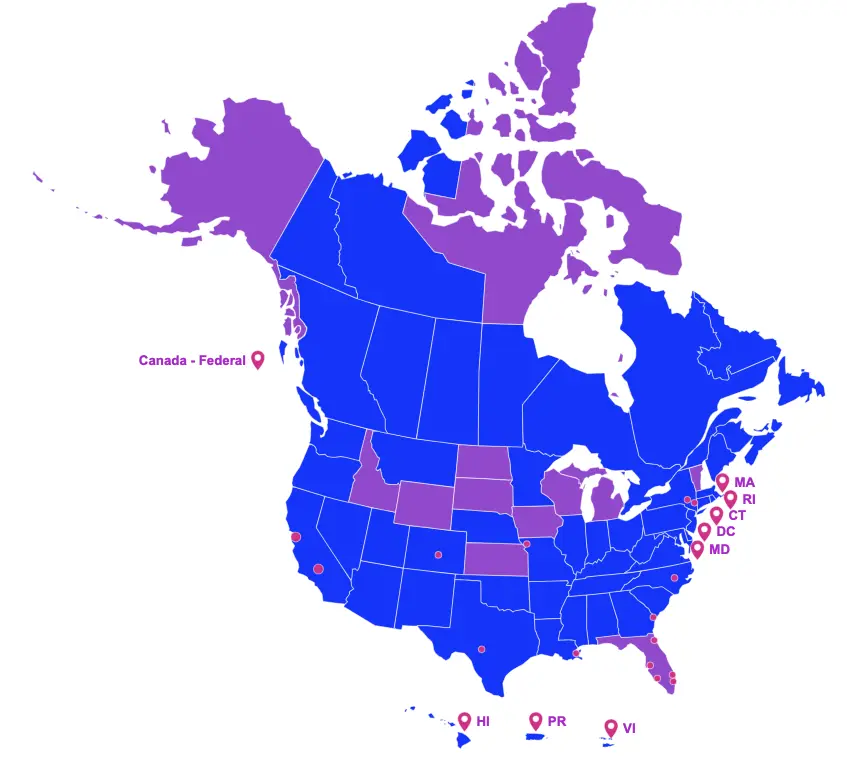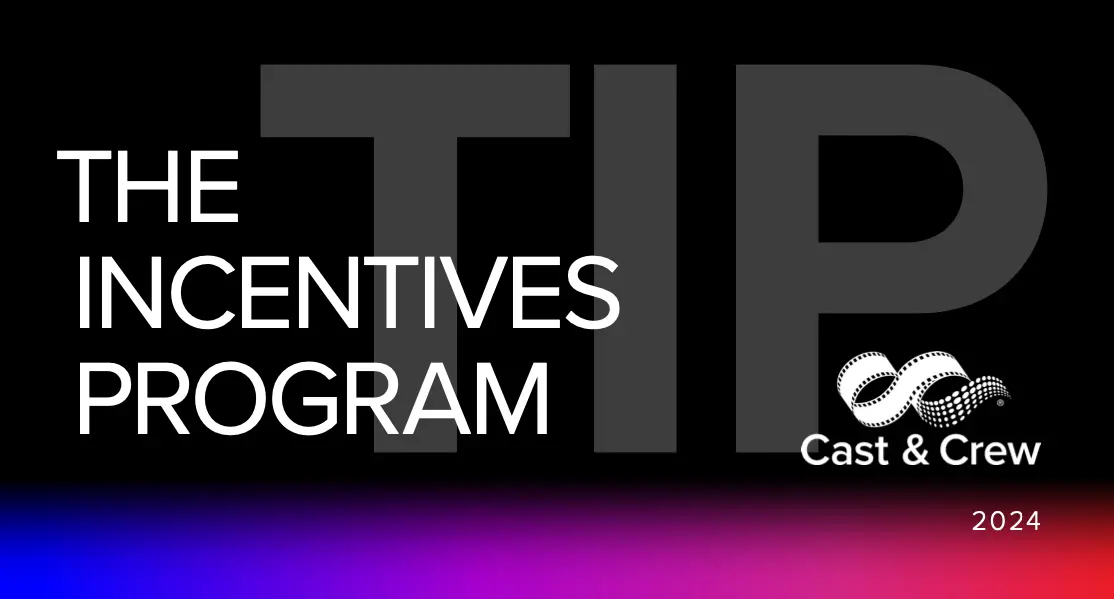THE INCENTIVES PROGRAM - TIP
A first look at our newsletter.
ON THE GOVERNOR'S DESK
Awaiting Signature
Georgia
House Bill 1181 is currently on the desk of Governor Brian Kemp and if signed would amend the Georgia Entertainment Industry Investment Act by reducing the unused tax credit carryforward from five to three years.
If enacted, this Act will become effective on January 1, 2025, and be applicable only to the unused tax credits generated during the taxable years beginning on or after January 1, 2025.
Utah
House Bill 78 is currently on the desk of Governor Spencer Cox and if signed would amend the Utah rural film production funding by stipulating that beginning July 1, 2024, the office may issue tax credit certificates for rural productions in each fiscal year in an amount determined in the immediately proceeding legislative session.
If enacted, this bill shall take effect on May 1, 2024.
PROPOSED LEGISLATION
Still in the House or Senate
Colorado
House Bill 1358 proposes to amend the Colorado film incentive tax credit as follows:
- Qualifies the 1st $1 million of payments made per calendar year to each loan out company;
- Requires a production company that makes a payment for services to any personal services corporation to file an information return pursuant to section 39-22-604 (21); and,
- Limits the aggregate amount of tax credits that may be awarded during the 2024 calendar year, and each year thereafter to $5 million.
Connecticut
House Bill 5099 proposes to replace the film production and digital animation production tax credits with a proof of performance rebate program.
House Bill 5110 and Senate Bill 40 propose to eliminate the film production and digital animation production tax credit program.
Georgia
As previously reported, House Bill 1180 proposes to amend the Georgia Entertainment Industry Investment Act. The bill has passed the House, with a few modifications from its introduced version, and is now in the Senate. Stay tuned for further updates.
Iowa
House Bill 731 proposes to establish the Iowa production incentive program. Details of the proposed program are as follows:
- Establishes a rebate equal to 30% of qualified expenditures, excluding any sales, use, and hotel and motel taxes paid;
- Provides for a per project incentive cap of $1 million per fiscal year (7/1 – 6/30);
- Allocates $5 million per year to the program;
- Requirements:
- Have production budget of at least one million dollars and evidence the production budget is fully funded;
- Have availability to the public for viewing at a venue where admission is charged, or availability for purchase, for rental, or through a streaming service that requires a subscription;
- Provide written acknowledgment by the qualified production facility that no qualified expenses were incurred prior to approval of the application by the authority
- Submit an audit report audited by a certified public accountant located in Iowa; and,
- Sunsets on December 31, 2026.
Oklahoma
House Bill 3964 proposes to amend the Oklahoma Film Incentive Rebate program as follows:
- Creates the Filmed in Oklahoma Live Studio Audience Episodic TV Program;
- Establishes continuing funding, not subject to fiscal year limitations;
- Funding consists of all monies received by the Tax Commission which are specifically required by law to be deposited in the fund, any public or private donations, contributions and gifts to the fund and any amounts appropriated by the Legislature;
- Stipulates the Fund shall only be used for the purpose of episodic television filmed in Oklahoma with a live studio audience;
- If the amount of approved claims exceeds the balance of the revolving fund, payments shall be made in the order that the claims are approved; and,
- If an approved claim is not paid in whole, the unpaid portion shall be paid upon the availability of funds.
If enacted, this act shall become effective July 1, 2024.
Wisconsin
Senate Bill 1026 proposes to create a refundable tax credit for nonpayroll expenditures and a transferable tax credit for certain payroll expenditures, details are as follows:
- Establishes a transferable tax credit equal to 25% of the first $250,000 of salary or wages paid to each resident employee for services rendered in Wisconsin, excluding the salary or wages paid to the 2 highest-paid employees, if the budgeted production expenditures are $1,000,000 or more;
- Establishes a refundable tax credit equal to 25% of qualified production expenditures, as defined;
- Establishes a transferable credit equal to the sales/use taxes that the production company paid in the taxable year;
- Provides for a per project incentive cap of $1 million per fiscal year (7/1 – 6/30);
- Allocates $5 million per fiscal year to the program;
- Requirements:
- Aggregated salaries and wages included in the cost of production within a 12-month period after the month in which principal photography began must exceed $100,000 for a production that is 30 minutes or longer, or $50,000 for a production that is less than 30 minutes; and,
- Include an acknowledgment to the state of Wisconsin and the state film office as designed by the state film office, including a logo designed by the state film office, in the credits.


